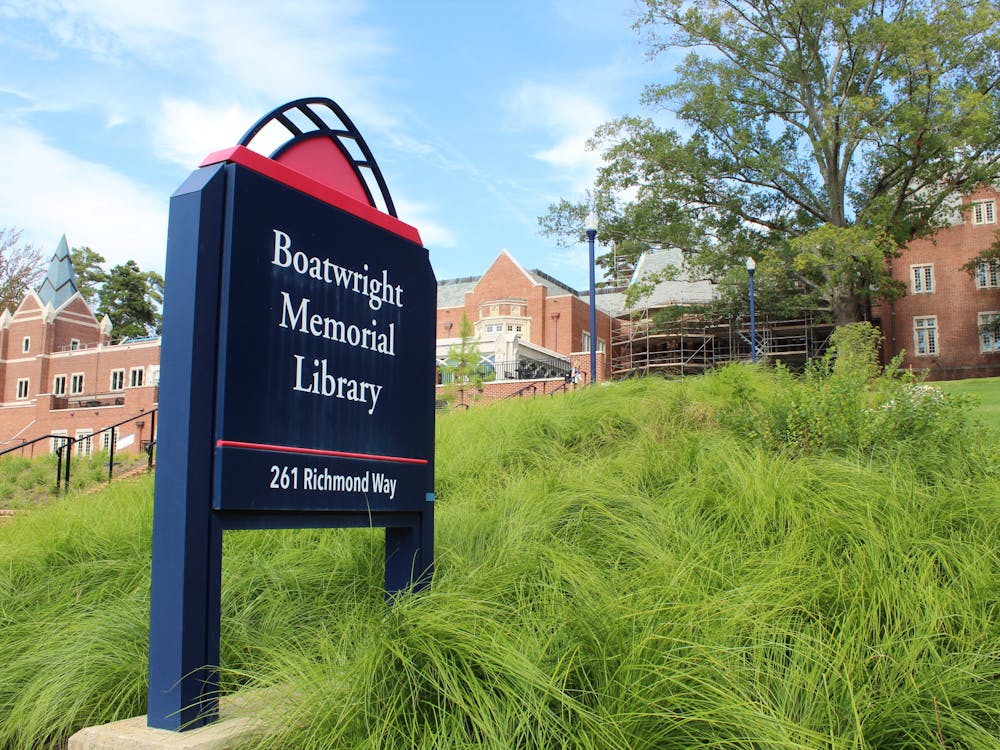Collegian Reporter
The research experience at the University of Richmond is distinct on the national scene, said Malcolm Hill, chairman and associate professor of biology.
"I don't think you could find an institution that does it better than we do," Hill said. "I think we're national leaders when it comes to undergraduate research."
In the biology department, between 50 and 75 students work in collaborative research efforts with professors.
"We try to match up research that students do with their interests and the need of the professor," Hill said. "It becomes a collaborative process."
Junior Bennett Peterson has been doing biology research since his freshman year. He works with Aparna Telang, assistant professor of biology, studying the gene expression of the larval stages of the aedes aegypti mosquito that transmits yellow fever.
The genes that Telang and Peterson study are important during the metamorphic events of a mosquito's life cycle. Some of the genes are also important in feeding. They are comparing how levels of gene expression change when the mosquito is either starved or fed, Peterson said. Telang has been awarded a grant from the National Institute of Health for this research.
During the school year, Peterson spends between six and 10 hours in the lab each week. Peterson has also spent the past two summers on campus doing research, thanks to a Howard Hughes Medical Institute scholarship.
Peterson meets with Telang at least once a week to talk about findings and to set up a research schedule for the following week. They are collaborators, so Peterson would never do any experiments without prior approval, Telang said.
"He will guide my thoughts as well," Telang said. "He'll say, 'Well you know this may not be working, what do you think about this?' So he and I will come to a conclusion together."
One of the things that contributed to Peterson's decision to attend Richmond was its undergraduate research program. He said it would be particularly useful when applying to medical or graduate school.
Enjoy what you're reading?
Signup for our newsletter
"At other undergraduate schools, it's hard to get research experience," Peterson said. "Richmond stands out for its premier undergraduate research and it also lets you get to know professors on an individual basis."
It is Peterson's work ethic that makes him an asset to a professor's research, Telang said. She said they would probably get a scholarly publication out of the research during the coming semester.
"He has helped in many aspects of the research, and not just as a pair of hands," Telang said. "He's helped with intellectual parts and he'll also be helping me develop a manuscript."
Through the research, students get to be creative and inventive as they problem solve. They are also able to practice what they have been learning in class.
"It's two sides of the same coin, doing research and taking classes," Hill said. "While you're doing research, you're learning about the systems that you work in. While you're taking classes, you're generating questions about the way things work as well."
Peterson said he would recommend that students get involved with their professor's research for many reasons.
"Research will significantly add to the undergraduate experience," Peterson said. "You get experience you wouldn't get in the classroom and you can apply theories from class in real-life research situations."
Contact reporter Emma Anderson at emma.anderson@richmond.edu
Support independent student media
You can make a tax-deductible donation by clicking the button below, which takes you to our secure PayPal account. The page is set up to receive contributions in whatever amount you designate. We look forward to using the money we raise to further our mission of providing honest and accurate information to students, faculty, staff, alumni and others in the general public.
Donate Now


